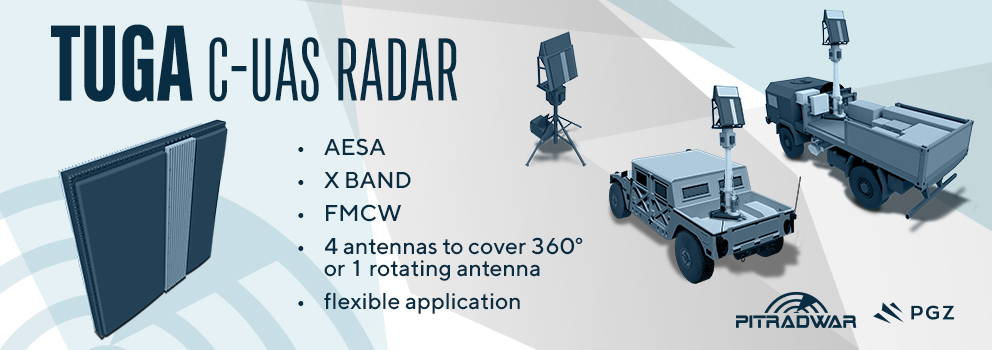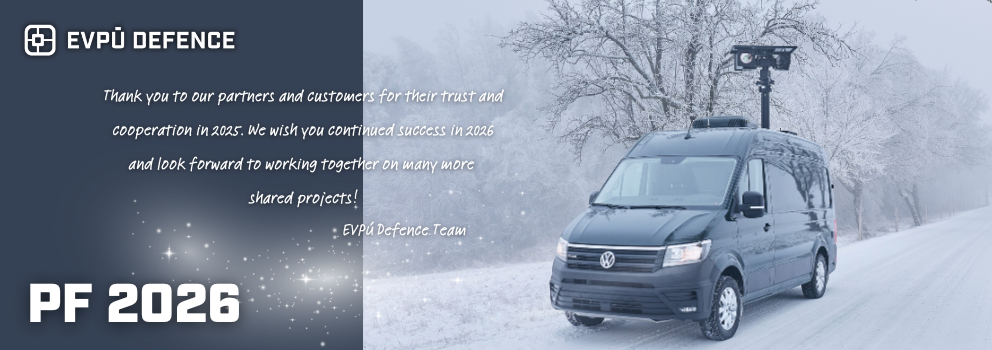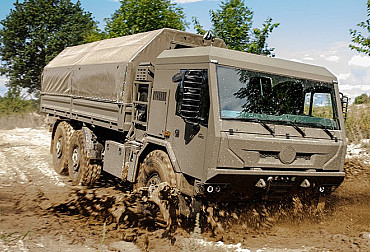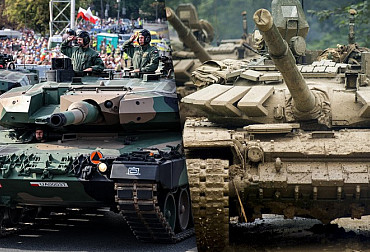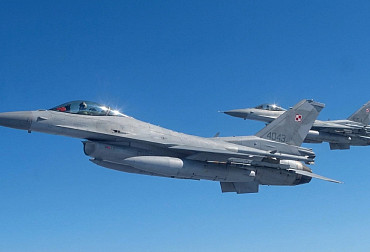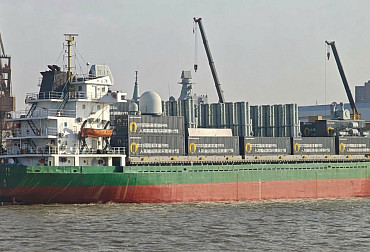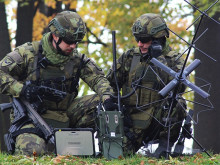Gen. Karel Řehka: A resilient society is made up of resilient citizens
Given the deficit from the past, 2% of our defence spending will not be enough to meet the commitments the Czech Republic has made in the Alliance, says Lieutenant General Karel Rehka, who also discusses the topic of strategic communication of the Czech Army, hybrid threats and challenges related to the modernisation of our army. In the interview we also touched upon the topic of insufficient staffing of the Czech Armed Forces and possible solutions.
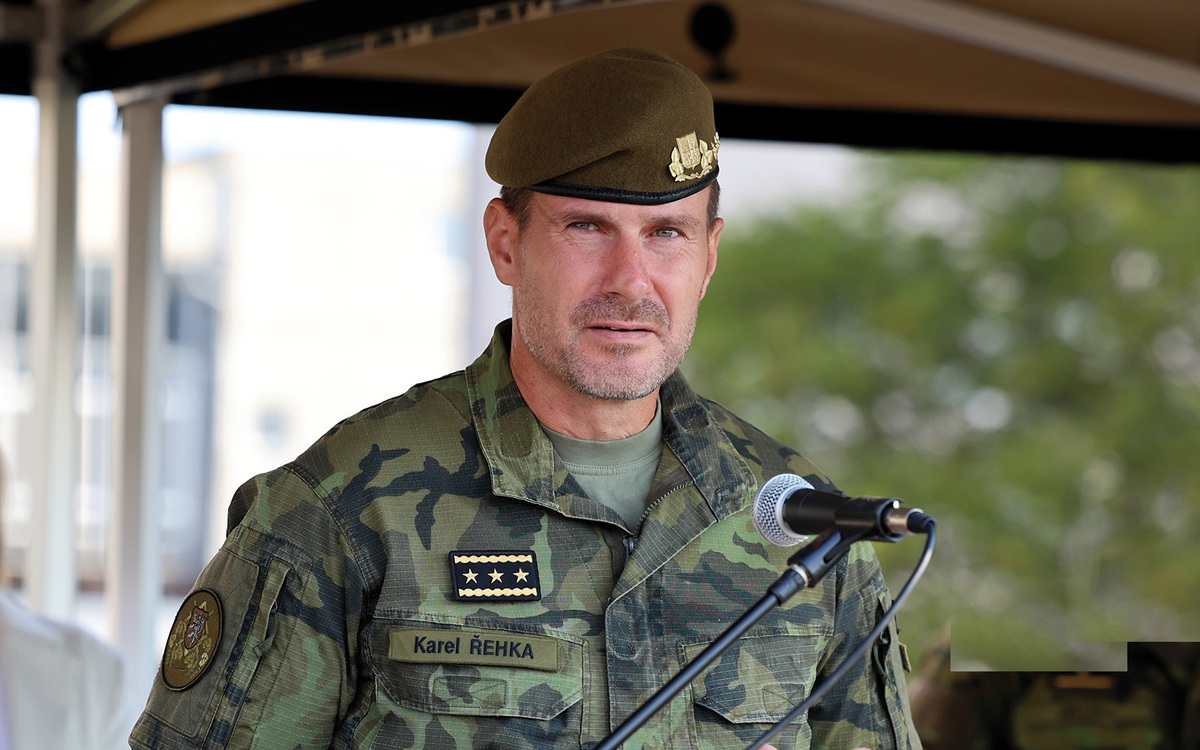
General, how do you perceive this year's zero year of the Voluntary Military Exercise (DVC) for high school students? And how much do you think it can help with recruiting new enlisted or active reserve soldiers?
We try to communicate with young people differently and meet their demands. The Summer Brigade with the Army, as we informally called the voluntary military exercise for high school students, is our next step to improve communication with the current young generation. The low interest in serving in the military is not because their generation is somehow bad, it is just different, and it is our responsibility to find the right way to engage them. We have approached the partner schools of two of our brigades to join the programme. And the students' interest in the exercise was huge. It exceeded even our initial estimates. We found the students' reactions very interesting and actually positive. On the one hand, there were people who maybe had never run before or didn't know how to take care of themselves, like wash their clothes and so on, but they were motivated and wanted to do something. This is just a program that has potential. It shows that you can work with the younger generation, that it's about how we communicate with them. It also shows the interest of the students to continue their service after the exercise. Some of them want to join the army after school, others want to join the active reserve.
This year, voluntary military exercises were held at two locations in the country, at the 4th Rapid Deployment Brigade and the 7th Mechanised Brigade. Are you planning to expand them to more places next year?
Yes, we are. The pilot year has shown that the interest in these exercises is high and the Army plans to continue and expand this project to other units. We need to evaluate our experience, catch the shortcomings, so that we can run the exercises bigger and better next year.
What benefits does this form of projects like DVC bring to social resilience?
There are several benefits. The exercise is designed to expose young people to the military at its most basic level. They will learn about the principles on which it is built, its traditions and its day-to-day functioning. Participants will experience first-hand what it is like to be a soldier. No networks or public events can do that yet. They will also learn many things that they can then use in civilian life. Their experiences will then go with them and they can share them with others. A resilient society is made up of resilient citizens. A group of people trained in this way then become soldiers in the reserves.
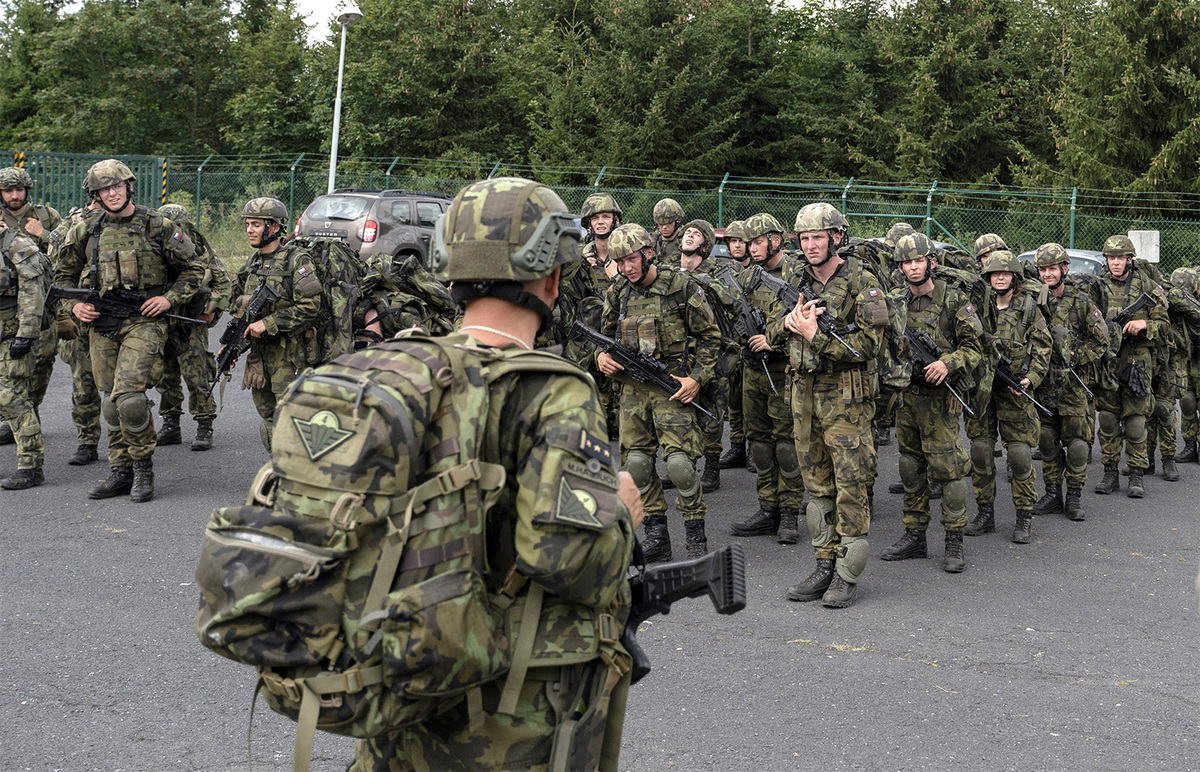
We are in the period when the state budget for next year is being approved. Do you think we will maintain the trend of spending at 2% of GDP?
Reaching 2% of GDP is crucial to ensure the country's defence capability. It is essential that these funds are used effectively and that investment is made in the modernisation and development of the army. Maintaining defence spending at 2% of GDP is an ambitious target. However, if security and defence is our priority, and I believe it is, then I expect the Government to seek ways to meet this commitment to our alliance.
At the same time, I say that 2% is the basic minimum to ensure the defence capability of the Czech Republic. However, given the deficit of the past, it will not be enough to meet the commitments that the Czech Republic has made in the Alliance. Moreover, new ones will be added next year.
As a soldier, how do you perceive the various discussions questioning the need for 2% of GDP spending on defence?
We have civilian control of defence, we have a democratically elected government and defence is not the responsibility of the military, but of the government. And if the government is not investing enough in defence, it is creating risks to the citizens and it is its responsibility. We soldiers just take the situation as it is. And that's the right thing to do. It's the government's prerogative, but as a soldier, I have to give true military advice. And I would argue today that 2% of GDP for defence spending, apart from the fact that we have approved it as the bare minimum, can only be sufficient for individual Alliance countries if they meet all their Alliance commitments. Which we are not. If we were investing in defence in the long term, as we should, that would be enough. But unfortunately, for many years, we haven't. Today we have an accumulated internal defence deficit in the hundreds of billions at a time when prices are rising and we have a security crisis.
It is legitimate that there is a discussion among politicians about the 2% because I understand that defence is not the only priority. But I also think that in today's security situation, it would be irresponsible not to fulfil basic commitments to the Alliance. Our membership of NATO provides us with unprecedented security and our society is prosperous because of it. It is decent and right to fulfil our commitments. This is also true of other countries. But ultimately, it is a political decision.
Personally, I very much appreciate the political courage and determination of the current Government to spend 2% of GDP on defence, and to spend it in a stable and predictable way.
There are currently two actually contradictory pieces of information running in the media space: 1. that the army is massively modernizing and 2. that defence spending is not being spent as it should be. So is everything going according to plan and is the army modernising as it wants?
Modernisation of the army is our priority not only because the Czech Republic has a combat-capable army, but also because we are an Alliance. Unfortunately, we are not fulfilling the commitments we signed up to. Although we are working intensively to provide the necessary equipment and to introduce modern technologies into the army, we have a huge internal deficit from previous years, which will not be easy to make up. Moreover, in these times of economic crisis and rising prices in the defence market, the actual spending of the budget is a challenge. Other challenges include the excessive procurement bureaucracy, administrative hurdles and then the consequent delays in deliveries. Yes, it is not just about allocating resources correctly, but also about ensuring that they are used effectively.
Does the current security situation, along with the increased armament of not only European armies, complicate the overall modernization of the Czech Armed Forces, for example, by extending the delivery timelines of certain systems?
Yes, it does. The old modernisation plans that were created years ago are no longer valid today. Prices have risen and we need more money for them. Increasing defence spending only when a crisis hits is not the best way to invest in security. Unfortunately, that is what we are doing now. You don't have enough of anything, you have to wait in line and everything is more expensive.
How do you view the statements of some politicians, etc., that you are scaring the population of the Czech Republic with your statements? How would you argue to this part of society that this is not really about scaremongering, but about the hard reality of today.
Yes, when I first said this, there was a huge wave of discontent and criticism that I was scaremongering. And some people still accuse me of artificially exaggerating the danger of war. Again, I repeat that with my statement "that as a result of Russia's growing aggression, the main task of Czech defence policy is to prepare for a prolonged, high-intensity defensive war with a technologically advanced adversary equipped with nuclear weapons", I was merely quoting the content of the Czech Republic's Defence Strategy, where this is directly written.
My duty as Chief of the General Staff of the Army of the Czech Republic is to tell it like it is. I was not intimidating anyone, I was merely stating a fact, which, after all, was approved by the Government.
And that we will find ourselves in conflict in the near future or even in the more distant future? I'm not saying it will happen, but it cannot be ruled out. We must do everything we can to avoid it. If you want peace, prepare for war. That's easy. Preparing for war when it breaks out is simply too late. And the military will then be criticized, perhaps by the same people, for not being prepared. That's not alibism, it's preparing for real threats. But the main goal is always effective deterrence, to prevent war.
Strategic communication also concerns the military. How do you think this communication is currently set up in the Czech Armed Forces? Do you have a team of StratCom staff?
The problem with strategic communication, not only in the army, but also in general, is that there is no unified idea of what it is and what we should think of it as. A lot of people talk about strategic communications today, but they imagine something a little bit different under it. Strategic communication should be part of our strategy, not talk about it. It is communicating in words and actions so that we support our objectives in the information environment. It's not about saying something to the media, it's also about what I do and how I behave. When we issue a doctrine, it is a form of strategic communication. When we hold exercises, that is also a form of communication. I don't think the military is doing too badly with strategic communications. That's why the Army has information and cyber forces. Methodologically, we still have work to do. But we also need to say that strategic communication cannot be isolated in the Army; we have to build on and be part of the broader strategic communication of the department and the state. In other words, we are not doing badly, we are much more aware of the importance of operating in the information environment, but we still have a lot to develop.
According to the Defence Strategy of the Czech Republic and other documents, our country should play the role of Host Nation Support within the Alliance. Is the Czech Republic or the Czech Armed Forces currently ready for this role?
Yes, host nation support is one of the important tasks of the Czech Republic within the framework of the Alliance plans. This support, which is necessary to provide logistical and operational support to allies on our territory, strengthens the overall NATO defence capability and enables the feasibility of defence plans.
We are also building new units to fulfil this capability, such as the Deployable Force Support Battalion in Rakovník. It is also about the immovable infrastructure and the ability to ensure the transfer of more Alliance troops across our territory and to provide them with the necessary services and servicing for a longer period of time. But Host Nation Support is not just a task for the military. It is a task that requires the involvement of the entire nation and society. You need a pervasive transportation network, health care, fuel, rations - the list goes on and on and is beyond the capabilities of the military alone.
Cyber or hybrid threats are a hot topic nowadays. If today, i.e. in peacetime, a cyber-attack occurs, for example, is this matter dealt with by the Ministry of the Interior, the army or any other authority? Can you give an example of a cyber threat that is already dealt with primarily by the military?
Our cyber information forces have celebrated five years of existence. They are still in the building phase; we are certainly not where we need to be. Given the speed of technological development, we'll probably never reach a point where we can say we're done now. As for cyber threats and defending against them, that is and always will be a dynamic process, but I do not think we have anything to be ashamed of.
The more we digitise – and we need to digitise because it is a trend that gives an advantage on the battlefield – you logically create certain dependencies and vulnerabilities. But the military's focus is primarily on protecting its own systems and supporting military operations. It can also be about actively engaging the adversary.
Critical infrastructure protection is primarily the responsibility of the NCIS, and the NCIS works with other agencies, such as the police and intelligence services, as needed. Active defence in cyberspace is by law carried out by the Military Intelligence Service. The military can support in a crisis, but our focus is primarily military operations.
How is the Alliance responding to the current security situation and how is the Czech Armed Forces doing in fulfilling our NATO commitments?
The Alliance is responding to the deteriorating security situation by significantly increasing the requirements for capabilities and capacities, not only in our country but in all Alliance countries, as part of its regular defence planning process. We have a lot to offer, but we are far from fulfilling even the old commitments, and now we are adding new ones with an emphasis on air, missile and drone defence, which are not cheap.
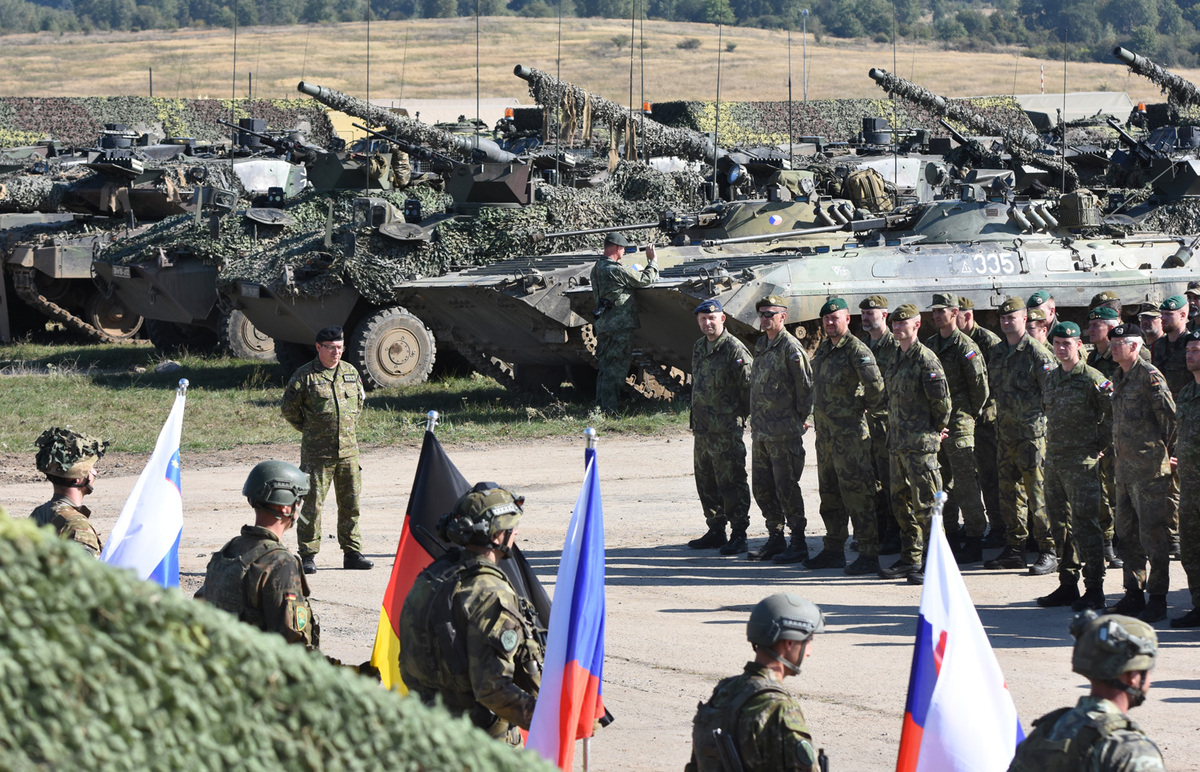
From 22 January to 31 May, NATO's largest exercise since the end of the Cold War, Steadfast Defender 2024, took place, involving, among other things, some 90,000 NATO troops. To what extent did our army participate and what was the main objective of this event?
We were involved in the exercise, so to speak, on a marginal basis. It was mainly due to the scenario of the exercise, which was developed somewhere else, outside the Czech Republic. Nevertheless, we participated in the exercise with almost a thousand of our soldiers. Specifically, these were the Brilliant Jump and Loyal Leda exercises. The largest exercise was Immediate Response, which was the largest Czech-American exercise ever on the territory of the Czech Republic. We have participated in other exercises abroad. It was mainly about sharing experiences and capabilities. It was important for us that we exercised with our allied partners and at the same time we exercised our own ability to support foreign troops on our territory.
In almost all interviews and discussions it is said that the basis of a combat-ready army is not only modern equipment but also a sufficient number of well-trained and prepared soldiers. The Czech Army has long been struggling with the understaffing situation. What do you think needs to be done to improve this situation as quickly as possible (for example better financial motivation or other benefits)?
It is a set of steps that we need to take. Most European alliance armies have a staffing crisis. There are reasons for this that we have to take as facts and work with them, such as different demographic conditions, the health of the population, competitiveness on the labour market with low unemployment. Then there are reasons that we can do something about - low awareness of military service, a complex and time-consuming recruitment system, and we can also do more to retain existing personnel.
That is why a working team was created, led by my deputy, Lieutenant General Miroslav Hlaváč. His team is tasked with proposing measures to change what we can. For example, to digitise as much as possible and thus simplify and speed up the recruitment process, to add new benefits for soldiers and perhaps even their families, and to use the benefits in a more targeted way. Now, in September, the government is expected to approve an amendment to the health decree, which regulates our requirements for those who want to serve in the army. For example, it sets a new minimum that a person must meet to be deemed fit for military service by the army.
Even the introduction of the aforementioned voluntary military exercises for high school students, continuing vocational training, or scholarship programmes for high school students and credits for university students are further steps towards making the army as an employer not just look better, but actually be better. All of this should help not only attract new people to the military, but also keep them in the military.
The Army of the Czech Republic has started cooperation with universities, such as ČVUT. What should this form of cooperation realistically bring to our army and in what timeframe?
The army is dedicated to artificial intelligence, for example, and in the future it certainly cannot do without it. It has been using it in some form for a long time, such as unmanned or unmanned vehicles, robotic systems or software components. But there are many other disciplines where artificial intelligence will help us and open up new possibilities. But it is not just about artificial intelligence, there are more areas like this.
Russia's attack on Ukraine has dispelled illusions of perpetual peace or a long warning period. The military simply has to adapt quickly to this situation. And as stated in the Czech Republic's Defence Strategy, we must prepare for a high-intensity conflict with a technologically advanced adversary.
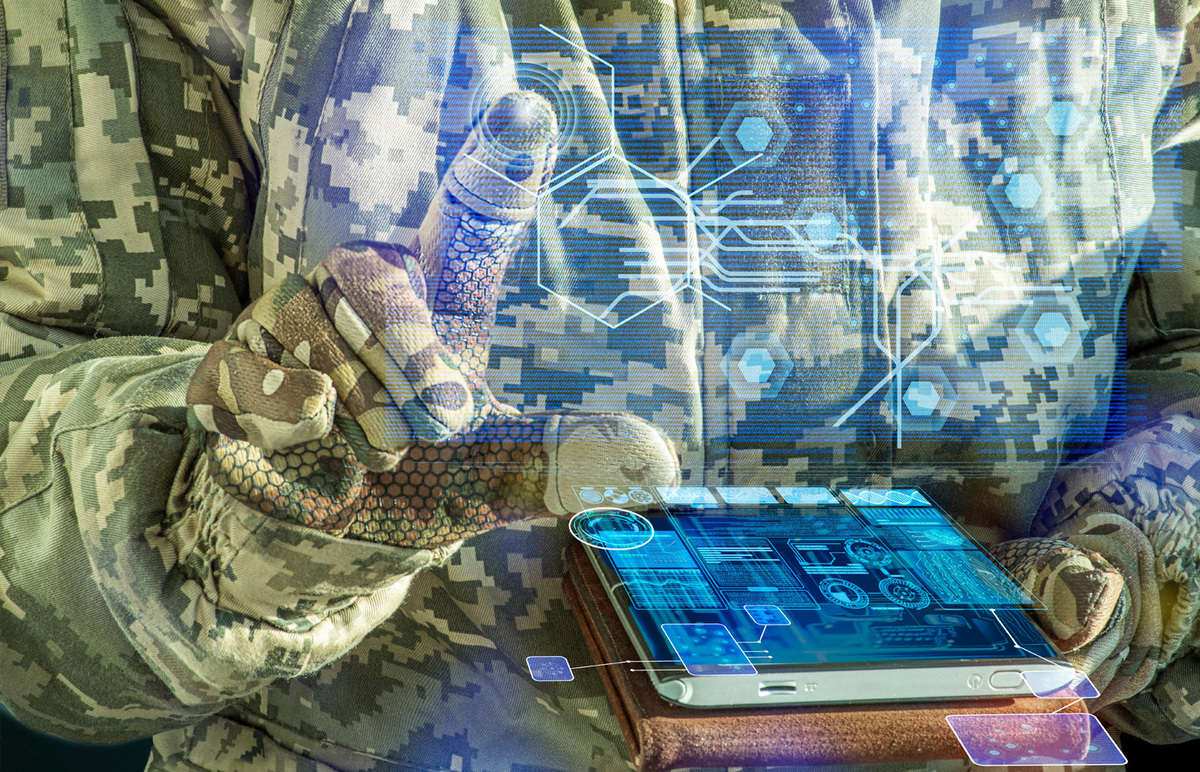
We are replacing old technology with new, but we also need to think beyond the horizon of how these systems will work. What future warfare will look like. We need to be able to fight in all domains of warfare. Everyone agrees that new technologies are coming. Whoever can control and use these technologies will also have technological superiority on the battlefield. And we must be able to do that.
In April last year, the army signed a memorandum of cooperation with ČVUT. This entitles us to work together with ČVUT on projects of breakthrough technologies and their design and introduction into the army. The Army has been using the knowledge of science and research in the field of new disruptive technologies EDT (Emerging and Disruptive Technologies) to improve technological maturity for a long time, but the connection with academics is what we have lacked so far and it would be a mistake not to use such civil-military cooperation.
Unmanned aerial vehicles of various categories are also of great importance on the modern battlefield. The Czech Armed Forces wants to acquire unmanned vehicles in the shortest possible timeframe, i.e. in the years 2025–2026. Is it only the acquisition of smaller unmanned systems or is it also planned to acquire tactical combat drones and standby munitions (kamikaze drones) in this period?
Not every battlefield in the future will look like the Ukrainian one. Every war has to be judged in a given situation and in a given context. In general, as they say, the nature of war remains the same in many ways, give or take. Sure, technology evolves, but it has always been that way. Their development is massive, but I would be cautious about immediately jumping on any trends. We've almost abolished tank troops or artillery as a relic here before, and Ukraine has shown the complete opposite. The idea that drones will replace everything is just nonsense. FPV drones, which have started to be used massively, certainly have their importance, it's a new aspect on the battlefield that needs to be taken into account. But the idea that they will replace artillery, for example, is wrong.
However, we are of course monitoring technological developments and we are counting on the introduction of other categories of unmanned systems and standby munitions.
Do you perceive any particular system that is critically missing in the Czech Armed Forces at the moment?
There is probably not one system that we are critically lacking. There's more than one that we're missing, and it's across all of the combat functions. From a strategic point of view, I probably perceive the shortfall most today in air defence and ballistic missile defence. And then in command and control systems and in digitalisation.
We are commemorating the 25th anniversary of the Czech Republic's accession to NATO and the 75th anniversary of the founding of this alliance. How important is the role of the Alliance in today's uncertain times? What should NATO focus on most in the years ahead? Do you agree with greater autonomy for the European NATO countries in view of the declared US commitments in the Western Pacific, where the situation there is currently deteriorating?
Being part of the largest defence alliance in the world gives us the confidence that we will not defend ourselves if we are attacked. But that doesn't mean we can rely on it and do nothing ourselves. Membership of the Alliance also means that we contribute our fair share to collective defence. It is our responsibility, as it is the responsibility of all states in the Alliance. The world is not safe and our only threat is not Russia. That is not only why the Alliance, but also our national goals and attention, are focused elsewhere. It is essential that Europe prepares intensively for possible conflicts and does not rely solely on outside help from the US. European states need to become more involved in defending their territory so that they are able to respond to various threats independently, which would also allow the US to focus on other global challenges, such as the situation in the Pacific.
In no way am I talking about building a "European army," but rather about strengthening the capabilities and capacities of European states within NATO.
